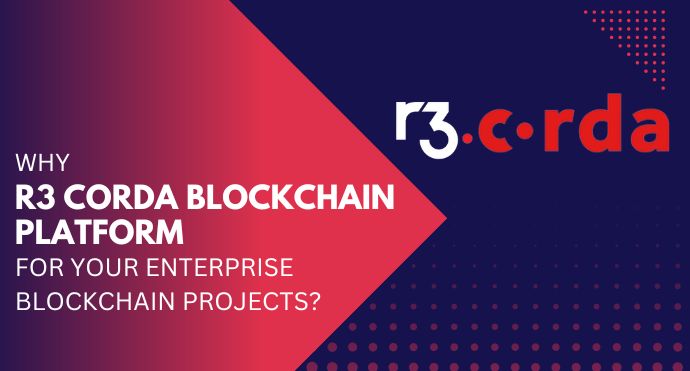In the world of cryptocurrencies, secure storage solutions are paramount. Crypto wallets act as digital vaults, allowing users to store, manage, and transact with their digital assets. But with various types of wallets available, it’s essential to understand the pros and cons of each. In this blog, we will explore the depths of centralized and decentralized wallets, as well as the convenience of Chrome extensions and the robustness of desktop applications. Let’s delve into the world of crypto wallets and uncover the best options for your needs.
Centralized Wallet with Custodial Wallet Structure:
Centralized wallets are provided by third-party companies or cryptocurrency exchanges. These wallets offer user-friendly interfaces, making them accessible to beginners in the crypto space. They often provide additional services such as crypto trading, lending, or staking options. However, centralized wallets require users to trust a custodial service with their private keys and funds. This introduces a level of reliance on the custodian’s security measures, making them vulnerable to hacking attacks, internal fraud, or server failures. While some centralized wallets may offer insurance coverage for potential losses, users must consider the trade-off between convenience and control.
Pros:
User-Friendly: Centralized wallets are designed for ease of use, making them accessible to crypto newcomers.
Customer Support: Users can seek assistance from the custodian’s customer support in case of issues.
Convenient Recovery: Custodians can often assist with account recovery in case of lost passwords.
Cons:
Lack of Control: Users cede control of their private keys to the custodian, potentially exposing them to security risks.
Vulnerable to Hacks: Centralized platforms are more susceptible to hacking attempts, leading to the potential loss of funds.
Decentralized Wallet with DApp Browser:
Decentralized wallets, also known as non-custodial wallets, provide users with full control and ownership of their private keys. Operating on blockchain technology, these wallets offer enhanced security and privacy. Users retain complete control over their wallets, reducing the risk of hacking attacks or theft by centralized entities. Decentralized wallets also offer compatibility with various blockchains, providing flexibility in managing different cryptocurrencies. However, the responsibility for securely storing private keys lies with the user. Losing private keys can result in permanent loss of access to funds, emphasizing the importance of diligent key management. Additionally, decentralized wallets can be more complex and less beginner-friendly compared to their centralized counterparts.
Pros:
Enhanced Security: Users have complete control over their private keys, minimizing the risk of unauthorized access.
Decentralized Finance (DeFi) Access: Integration with Dapp Browsers enables users to participate in DeFi protocols and other blockchain applications.
Privacy: Decentralized wallets prioritize user privacy as they do not rely on third-party entities.
Cons:
Learning Curve: Decentralized wallets may have a steeper learning curve for users unfamiliar with blockchain technology.
Responsibility for Key Management: Users must take full responsibility for securely storing and managing their private keys.
Chrome Wallet Extension:
Chrome extensions provide a convenient way to access crypto wallets directly within your web browser. They seamlessly integrate with web interfaces, facilitating interaction with decentralized applications (DApps). Chrome extensions offer accessibility from any device with the Chrome browser installed, providing flexibility for managing your wallets on the go. Some extensions even offer additional features like real-time price tracking or portfolio management. However, it’s crucial to exercise caution when installing and using Chrome extensions. They can be vulnerable to phishing attacks or malicious software, making it essential to verify the source and regularly update the extensions. Furthermore, compatibility with non-Chrome browsers may be limited.
Pros:
Browser Integration: Chrome wallet extensions seamlessly integrate with the browser, offering a familiar environment for users.
Fast Transactions: Users can quickly initiate transactions without the need to switch between applications.
Easy Setup: Setting up a Chrome wallet extension is usually straightforward and requires minimal technical knowledge.
Cons:
Security Concerns: Browser-based extensions may be vulnerable to certain types of attacks or phishing attempts.
Limited Functionality: Chrome wallet extensions may not offer the full range of features available in standalone wallets.
Desktop Wallet Application with Full Node Interaction:
Desktop applications are standalone software programs installed on users’ computers, offering a high level of security and control. These wallets provide offline storage of private keys, minimizing exposure to online threats and hacking attacks. With desktop wallets, users have complete control and ownership of their wallets and funds, without relying on external services. Regular updates ensure users benefit from the latest security enhancements and bug fixes. However, desktop wallets may have limitations in accessibility compared to web-based wallets or mobile apps. Users must also take precautions to protect their computers against malware or unauthorized access. Manual backup and protection of wallet data are crucial for safeguarding digital assets.
Pros:
Increased Security: Desktop wallets with full node integration offer enhanced security and reduce reliance on third-party servers.
Transaction Speed: Full node interaction enables faster transaction processing and confirmation times.
Offline Accessibility: Desktop wallets can be used offline, providing an added layer of protection against online threats.
Cons:
Technical Requirements: Some desktop wallets with full node interaction may require more significant technical expertise to set up and maintain.
Storage Space: Full node wallets may consume significant storage space as they need to store the entire blockchain.
Conclusion:
Crypto wallets play a crucial role in securely managing digital assets. Centralized wallets offer user-friendly interfaces and convenience but introduce reliance on custodial services. Decentralized wallets provide enhanced security and ownership, but users must take responsibility for secure key management. Chrome extensions offer convenience and accessibility, but caution is necessary to mitigate potential risks. Desktop applications provide robust security and control, but accessibility maybe limited. When choosing a crypto wallet, it’s important to consider your needs, risk tolerance, and desired level of security. Conduct thorough research, follow best practices, and stay informed about the latest security measures. By making an informed choice, you can confidently navigate the depths of crypto wallets, ensuring the safety and security of your digital assets.



